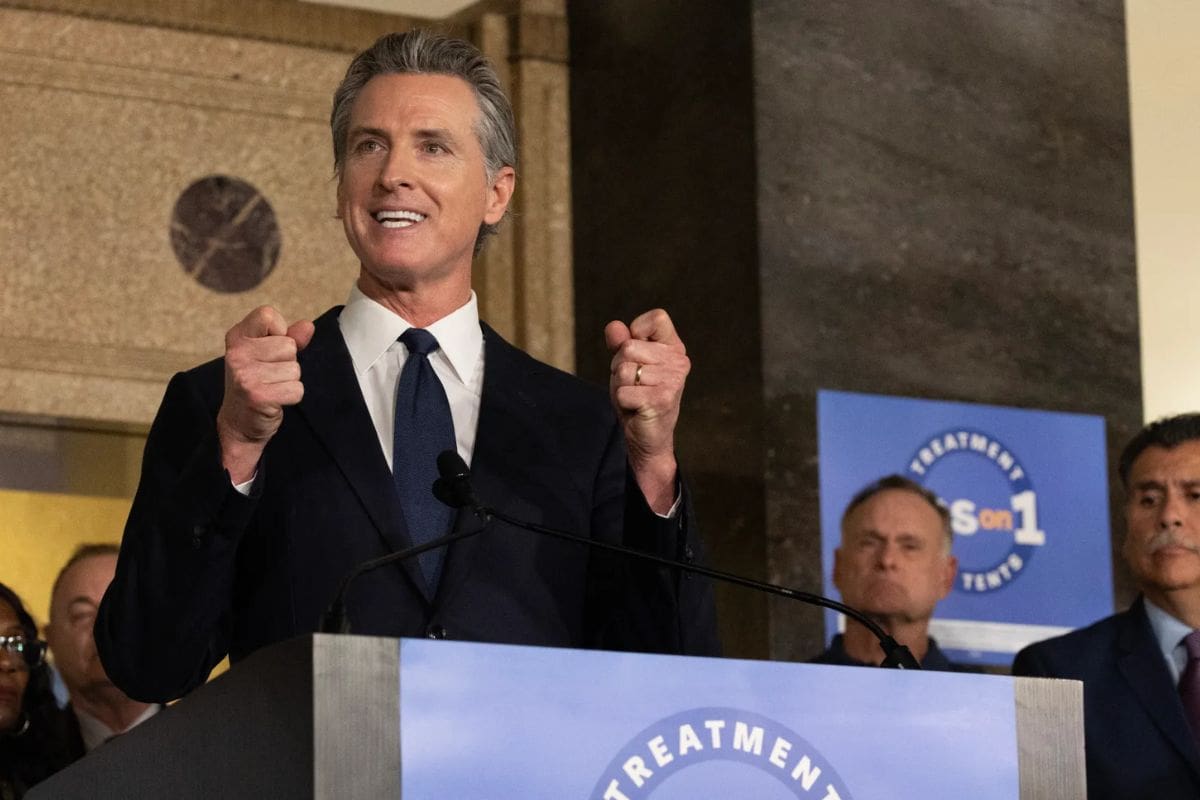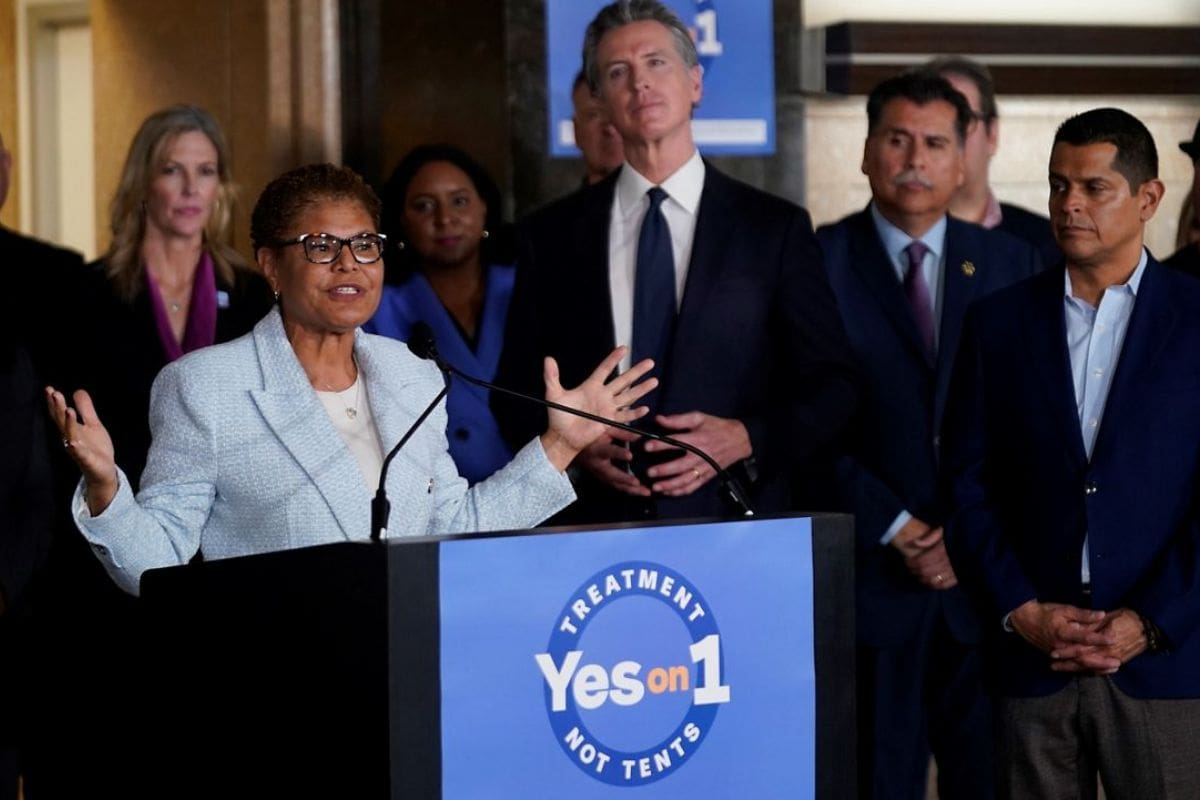California Voters Split: In California, the $6.4 billion mental health measure, Proposition 1, has sparked a division among voters.
As the state grapples with the need for a comprehensive overhaul of its mental health system, Proposition 1 aims to address crucial funding gaps.
However, differing perspectives on the measure’s implementation and potential consequences have led to a close race in the upcoming election.
The decision on Proposition 1 could significantly impact mental health services in California, prompting voters to carefully consider the implications of their choice on the well-being of the community.
Close Race for Mental Health System Overhaul
The race for the overhaul of California’s mental health system is currently at a critical juncture, with Proposition 1 facing a tight margin of support and opposition following the recent primary election. This voter initiative, backed by Gov. Gavin Newsom and several Southern California officials, aims to revamp the state’s mental health care system by increasing treatment beds and supportive housing options. Despite this noble goal, the latest vote count reveals a nearly even split among Californian voters, with 50.4% in support and 49.6% in opposition.
The results of this primary election indicate a significant divide within the state regarding the proposed $6.4 billion overhaul of the mental health system. As the fate of Proposition 1 hangs in the balance, both proponents and opponents are intensifying their efforts to sway public opinion and secure a victory. The outcome of this closely contested race will profoundly impact the future of mental health care in California, making it a pivotal moment for the state’s healthcare landscape.
Proposition 1 Details and Funding Structure
Detailing the specifics of Proposition 1, the proposed measure aims to establish 11,150 behavioral health treatment beds, housing, and 26,700 outpatient treatment slots throughout California. The funding structure involves issuing $6.38 billion in bonds and reallocating funds from the 2004 Mental Health Services Act, which levied a 1% income tax on earners exceeding $1 million. While supporters argue this will significantly boost mental health services in the state, critics express concerns that it may lead to potential funding cuts for existing successful programs.
Key Details:
- Creation of 11,150 behavioral health treatment beds and housing.
- Establishment of 26,700 outpatient treatment slots.
- Funding structure includes issuing $6.38 billion in bonds and reallocating funds from the 2004 Mental Health Services Act.
This funding strategy aims to address the pressing need for expanded mental health services across California, but the debate continues regarding the potential impacts on existing programs.

Differing Perspectives on Proposition 1
Supporters and opponents of Proposition 1 present contrasting views on the potential impacts of the proposed mental health measure in California. Governor Newsom and Los Angeles Mayor Karen Bass advocate for Proposition 1, viewing it as a monumental step towards realizing a comprehensive mental health care system in the state after decades of unmet promises. They argue that the measure could address past failures and potentially alleviate issues like homelessness.
In opposition, ‘Californians Against Proposition 1’ criticize the initiative as excessive, costly, and harmful. They claim that Proposition 1 would divert funds away from existing mental health services, undermining the current infrastructure and putting essential services at risk. The stark divide between supporters and opponents underscores the contentious nature of the proposition, with each side presenting starkly different visions of the potential outcomes of Proposition 1 if it were to pass.
Proposition 1’s Potential Impact on Mental Health Services
Amidst the heated debate surrounding Proposition 1, stakeholders are deeply divided on the potential repercussions the measure could have on California’s mental health services.
- Supporters advocate for change, highlighting the necessity of moving away from the current state of mental health services.
- Critics raise concerns about the financial implications, fearing increased taxpayer burden and possible cuts to existing effective mental health programs.
- The outcome of Proposition 1 could significantly influence the direction of mental health care reform in California, shaping the landscape of services available to those in need.


ALSO READ: Unlocking California Housing Crisis Expert Breaks Down Biden Game-Changing Plan
News in Brief
California Voters Divided on $6.4B Mental Health Proposition: Proposition 1, seeking a major overhaul of the state’s mental health system, faces a tight race post-primary. With Gov. Gavin Newsom’s endorsement, the measure aims to bridge funding gaps and enhance mental health services. The latest vote count reveals a near 50-50 split, intensifying the battle between supporters and opponents. Proposition 1 details include creating treatment beds and outpatient slots, funded by $6.38 billion in bonds and reallocating 2004 Mental Health Services Act funds. Differing views on its impact underscore a pivotal moment in shaping California’s mental health landscape, with profound consequences for existing programs and future reforms.
Our Reader’s Queries
How many people struggle with mental health in California?
Between February 1 and 13, 2023, 31.7% of California adults experienced symptoms of anxiety and/or depressive disorder, slightly lower than the national figure of 32.3%, as depicted in the figure below.
What is the mental health data for youth in California?
Based on data spanning from 2017 to 2021 obtained from parents and caregivers, approximately 12% of children aged 3-17 in California were identified as having one or more mental health conditions diagnosed by healthcare providers. These conditions include attention deficit disorder (ADD) or attention-deficit/hyperactivity disorder (ADHD), anxiety problems, and behavioral or conduct problems.
Does California have mental health?
In California
1 in 7 adults has encountered mental health challenges. Approximately 287,000 youth grappling with major depression lack access to treatment. An alarming 82% of surveyed homeless adults have faced serious mental health conditions. Vulnerability is heightened among Black, Native American, and LGBTQ+ youth.
